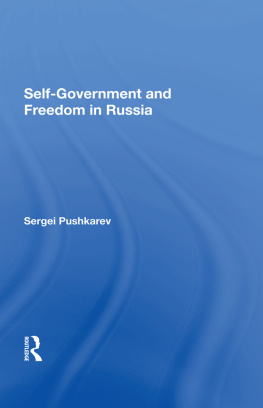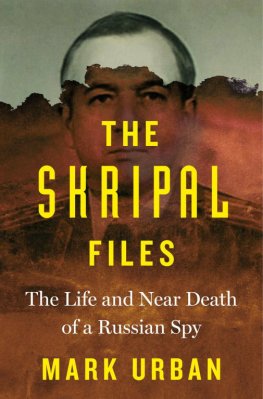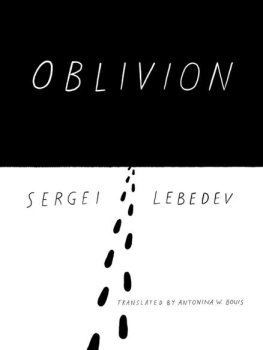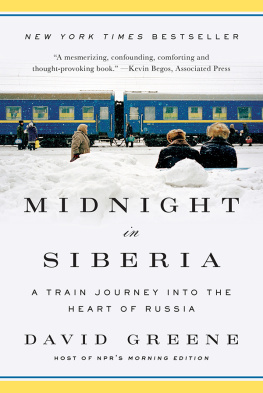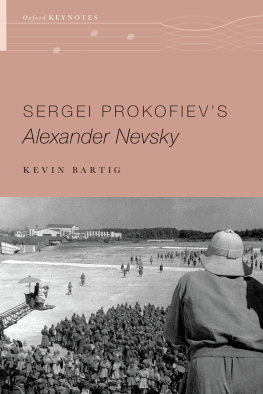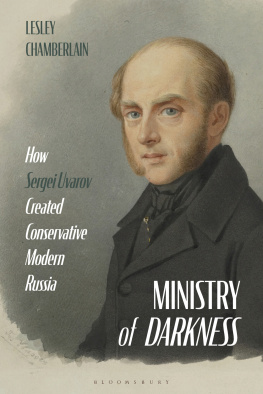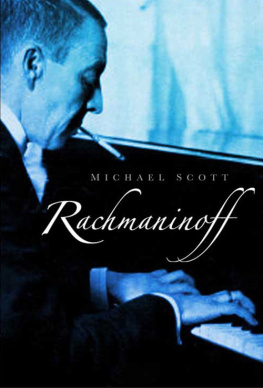CCRS Series on Change in Contemporary Soviet Society
First published 1988 by Westview Press
Published 2019 by Routledge
52 Vanderbilt Avenue, New York, NY 10017
2 Park Square, Milton Park, Abingdon, Oxon OX14 4RN
Routledge is an imprint of the Taylor & Francis Group, an informa business
Copyright 1988 Taylor & Francis
All rights reserved. No part of this book may be reprinted or reproduced or utilised in any form or by any electronic, mechanical, or other means, now known or hereafter invented, including photocopying and recording, or in any information storage or retrieval system, without permission in writing from the publishers.
Notice:
Product or corporate names may be trademarks or registered trademarks, and are used only for identification and explanation without intent to infringe.
Library of Congress Cataloging-in-Publication Data
Pushkarev, Sergei.
Self-government and freedom in Russia.
(CCRS series on change in contemporary Soviet
society)
1. Soviet UnionPolitics and government. I. Title.
II. Series.
DK61.P87 1988 947.084 87-31625
ISBN 13: 978-0-367-28705-4 (hbk)
History is often referred to as a nations conscience. It is scarcely surprising, therefore, to see the current debate in the U.S.S.R. over the contents of history described by the Soviet press as the ideological battleground of perestroika.
This debate takes many forms - from writings reappraising the famous Soviet leaders purged by Stalin, to those reconsidering the economic cost of collectivization. But by far the most controversial topic is re-evaluating the October Revolution of 1917 and the political legacy of V. I. Lenin. The Communist Party has been hesitant to allow intense scrutiny of this period, for fear that it might lead some to a more favorable evaluation of the accomplishments of pre-revolutionary Russia, and hence call into question the rationale for the Bolshevik Revolution and the Soviet state. Nonetheless, there are clear indications that even this last Rubicon of Soviet historiography will soon be crossed.
A few Soviet historians and writers have openly questioned the internationalist premise of the October Revolution and indicated their sympathy for a positive reconsideration of Russian national history. Doctor Vladlen Sirotkin, writing in the popular weekly Nedelia, condemns the nihilistic attitude toward the past of our country. Is it any wonder, he writes, that irreplaceable national monuments were vandalized when Mikhail Pokrovsky, the doyen of Marxist historians, once referred to the very concept of Russian history as anti-revolutionary?
Even today, it is exceedingly rare for Western audiences to be exposed to a Russian national historical viewpoint. Emigre historians have tended to write in their native tongue and for the benefit of future (i.e., post-Soviet) generations of Russian readers. Soviet authors have had to condition their writings so as to present a favorable view of the October Revolution. Western scholars have generally eschewed the very notion of patriotic or concerned history as unprofessional and inappropriate.
By contrast, Sergei G. Pushkarev would no doubt have agreed with the recent editorial stance taken by the London Daily Telegraph, that the whole point in history is that it fosters a national sense of identity. To the first wave of post-revolutionary Russian intellectuals fleeing from the ravages of civil war and social upheaval, this mission was all important because the Bolshevik revolution was perceived as having destroyed the fabric of national identity and having subverted traditional authority.
Pushkarevs work gives important insights into the mind of the historian who approaches Russian history from a patriotic position. Though the body of his work was completed over two decades ago, his concerns as an historian strikingly mirror those of the current wave of revisionist Soviet historians who have emerged under Gorbachev. These Soviet historians, like Pushkarev, are trying to recover some of the values of the past.
Self-Government and Freedom in Russia is Professor Pushkarevs last book, edited posthumously. It is an important and succinct statement of the view that Russian history reflects a diversity of political experience. Pushkarev felt that throughout Russian history the search for individual liberty and the right to self-government have been abiding quests of the Russian people, even during the times of darkest despotism. His thesis is particularly important today, in the context of glasnost , because it elucidates the historical roots of the process of social change which the Soviet Union is undergoing today.
The purpose of the CCRS Series on Change in Soviet Society is to familiarize the Western reader with the scholarly arguments that supporters of change are likely to draw upon. Forthcoming volumes will feature the works of both Western and Soviet authors, each of which elucidates a key point in the current debate over democratization in the Soviet Union.
I would like to thank the people who have helped in the translation and editing of this book: Paul Bannes for his excellent translation of the text, and Christina Sever, CCRS publications coordinator, who gave unstintingly of her time to edit, revise, and review the translation of the manuscript. Without their superb work we could never have completed this project. Finally, I wish to thank our editor at Westview Press, Susan L. McEachern, for her calm confidence in us and her thoughtful support.
Nicolai N. Petro
Center for Contemporary Russian Studies
Monterey Institute of International Studies
. Vladlen Sirotkin, Ni khrama, ni dorogi k khramu, Nedelia (#6, 1988); 11.
. The Herald (Monterey, California), The Best History Is True History, June 13, 1988, p. 16.
Even the smoke of the fatherland is sweet and pleasant to us.
Griboedov, Woe from Wit
Although derailed by the October Revolution and forced repeatedly to change countries, languages and conditions of work, Sergei Germanovich Pushkarev proved to be in the course of his long life a remarkably productive historian. Author of several books which characteristically combined broad sweep with richness and precision of detail, he also published in a number of languages over two hundred shorter pieces. Those I have at hand in my private library range chronologically from the Time of Troubles and Don Cossacks and the Moscow State in the Seventeenth Century through a general estimate of Peter the Great and The Russian Peasants Reaction to the Emancipation of 1861, to the last years of the empire, the revolutions, and, time and again, Lenin. The variety and span are equally great thematically, for Sergei Germanovichs scholarship extended from the peasants to the tsars and from Russian-American relations to historiography. There is even a fascinating personal memoir on the events of 1917. In addition, and perhaps most importantly, Pushkarev played crucial roles in the production and publication of both a Dictionary of Russian Historical Terms from the Eleventh Century to 1917 and a three-volume Source Book for Russian History from Early Times to 1917 put out by Yale University Press to the great benefit of all students of Russian history in the English-speaking world.

